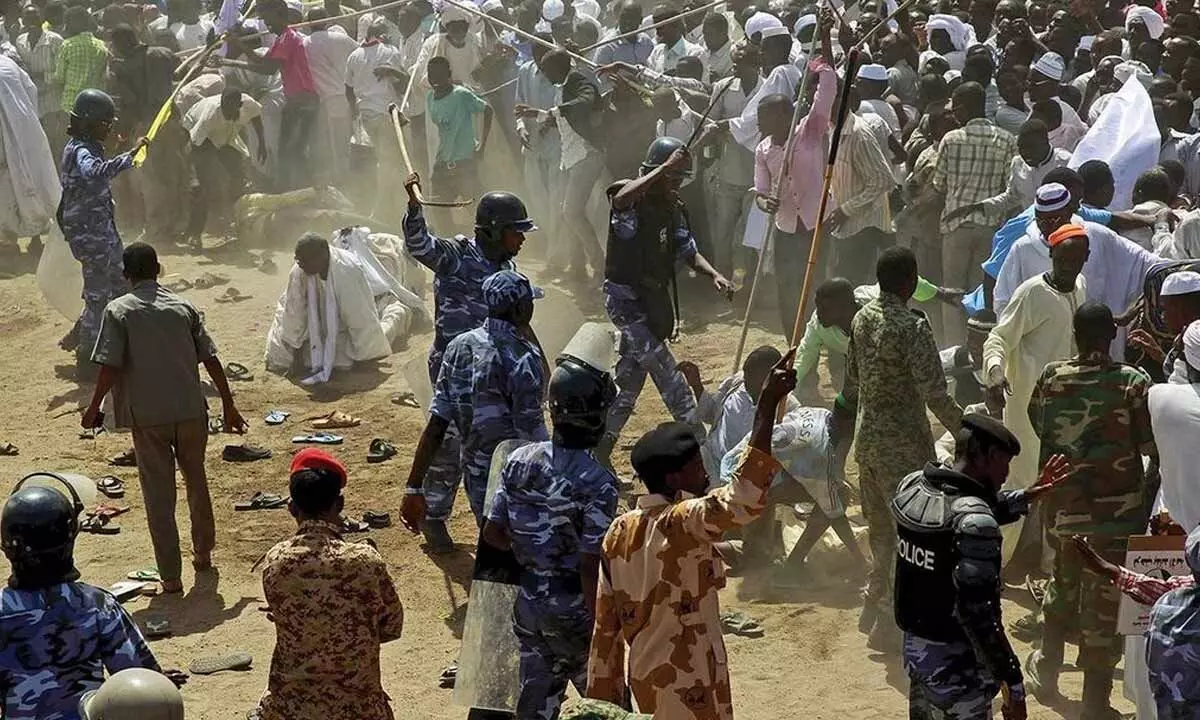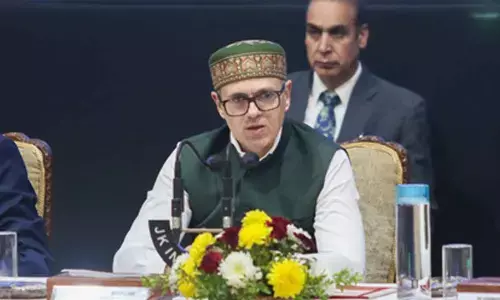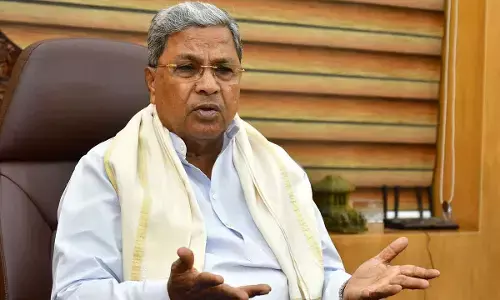Global apathy to atrocities in Darfur

As the deadly war in Sudan enters its second year, it is nearly impossible to overstate the global indifference and inaction in the face of ongoing devastating mass atrocities in Sudan
As the deadly war in Sudan enters its second year, it is nearly impossible to overstate the global indifference and inaction in the face of ongoing devastating mass atrocities in Sudan. The international community’s virtual silence continues despite the imminent risk of genocide and crimes against humanity in El Fasher as the Rapid Support Forces (RSF), a paramilitary group, besieges Darfur’s largest city, where essential supplies are running out.
Seventy-five years ago, the United Nations adopted the Convention on the Prevention and Punishment of the Crime of Genocide – and with it, made the solemn promise to prevent the worst horrors of the 20th century from ever happening again.
Twenty years ago, a massive movement emerged in the United States rallying behind the populations at risk of genocide in Darfur. However, the absence of a significant transitional justice period led to the same cycles of genocidal violence today – the same perpetrators committing the same crimes of destruction against the same victim groups with impunity.
Since April 2023, tens of thousands of civilians have been killed, nearly nine million people (the largest number globally) forcibly displaced from their homes, including more than 4 million children, and an untold number affected by violence and deadly diseases within a decimated health care system, where 70-80 percent of hospitals and other health care facilities are no longer functional.
The war is creating “the world’s largest hunger crisis,” warned the Executive Director of the UN World Food Programme. The looming famine threatens to drive 7 million people into catastrophic levels of food insecurity (IPC Level 5) by June, during the lean season. More than half the population is in need of humanitarian aid and food assistance. According to Doctors Without Borders/Médecins Sans Frontières (MSF), in Zamzam displaced persons’ camp near El Fasher, about 30 per cent of the children have been found to be suffering from acute malnutrition. Earlier in February, MSF reported at least one child dies every two hours in the camp.
While conflicts elsewhere capture headlines, the plight of the Sudanese people often goes unnoticed, relegated to the sidelines. And while the UN Office for the Coordination of Humanitarian Affairs’ 2024 plan for Sudan identified that at least $2.7 billion was needed, only 10.3 per cent of that minimum had been funded as of April 25. This lack of attention not only prolongs human suffering and serves as a stain on the international community’s collective consciousness, but also sends a chilling message: that some lives are deemed more expendable than others.
In mid-April, a year since the outbreak of the devastating war between the Sudanese Armed Forces and the RSF, we released the first independent legal analysis into breaches of the Genocide Convention in Darfur. We served as the primary authors of the report, with contributions and endorsements from dozens of world-leading jurists and scholars in the field, including founding prosecutors of the international criminal tribunals, former supreme court justices, and presidents of the International Association of Genocide Scholars.
Based on this analysis, we reached the following conclusions, the evidentiary bases of which are explained in detail in the full report.
First, based on clear and convincing evidence, the RSF has committed and is committing genocide against the non-Arab Masalit group in West Darfur. Despite the early signs, the international community failed to prevent the genocide in West Darfur.
Second, based on the first conclusion, and as established by the ICJ in Bosnia v. Serbia, all 153 State parties to the Genocide Convention are under the obligation to halt and prevent the genocide and a corresponding duty act. The international community has long avoided responding adequately to the Darfur genocide.
Third, based on clear and convincing evidence, the RSF and its allied militia are responsible for direct and public incitement to genocide against the Masalit in West Darfur. The report extensively details the direct incitement expressed often as explicit intent to destroy non-Arab groups preceding genocidal acts. The RSF militias make blanket calls to “kill Masalit” or “shoot the boys,” use language such as “we must destroy them now,” and repeatedly refer to members of non-Arab groups as “slaves,” “dogs,” or “dirt.” This pattern of open dehumanization and incitement results in the most brutal forms of identity-based atrocities.
Fourth, based on clear and convincing evidence, the United Arab Emirates (UAE) (bearing greatest responsibility), Chad, the Central African Republic, Russia via the Wagner Group, and Sudan are complicit in the genocide. Each of these States is complicit by providing the RSF with political, geographic, financial, and military support directly fuelling the genocide.
Fifth and finally, there are reasonable grounds to believe that the RSF and its allied Arab militia are committing genocide against non-Arab populations other than the Masalit, mainly the Fur and Zaghawa.
Subsequent Developments Show the International Community Must Act Now Since we released the report in April, shocking levels of violence continue to unfold. The RSF has razed villages on its way to attacking El Fasher, signaling the imminent and catastrophic risk of genocide there. The early signs we are witnessing in and around El Fasher are similar to what we have seen in El Geneina. These include deliberate incitement campaigns against the non-Arab Zaghawa and Fur populations.
Recently, U.S. Ambassador to the U.N. Linda Thomas-Greenfield sounded the alarm, saying El Fasher “is on the precipice of a large-scale massacre.”
Placing Darfur’s crisis as a top priority on the global agenda is critical. Now that the international community is aware of the risks in El Fasher, all States are under the obligation to decisively act to protect populations in El Fasher and live up to their commitment under the Genocide Convention and international law.
First, at a minimum, the UN Security Council should host an emergency meeting to raise the profile and shine a protective spotlight on the populations at risk. The urgency of the situation in El Fasher demands immediate action and cannot wait for the complex bureaucratic process of deploying troops.
Second, the African Union member States should take the lead and uphold their promise and commitment to prevent genocide through all reasonable means.
Third, The UN Panel of Experts on Sudan already identified some of the financing and arms supply networks in its findings, which should now be targeted with concrete sanctions. The Security Council can further add the implicated entities to its consolidated sanctions list.
Fourth, the International Criminal Court must issue arrest warrants against all perpetrators involved in atrocity crimes in Darfur. Arrest warrants will put the world on notice and at least disqualify the RSF leaders from international diplomacy and engagement.
Fifth, the international community must call out the specific individuals behind the genocide and other atrocities as well as their enablers. In particular, the RSF’s commander Mohamed Hamdan Dagalo (a.k.a Hemedti) must be directly held accountable for his command responsibility over the RSF.
Finally, the international community must urgently and timely deploy the recent pledges made by donors at the Paris conference for Sudan — the only way to start adequately addressing the needs of 18 million Sudanese facing acute levels of food insecurity.
In a climate of apathy and cynicism around an impartial and effective system of international law, these are the bare minimum common-sense steps that States should take today to stop the genocide in Darfur and support the communities most impacted and at risk.
(https://www.commondreams.org)














